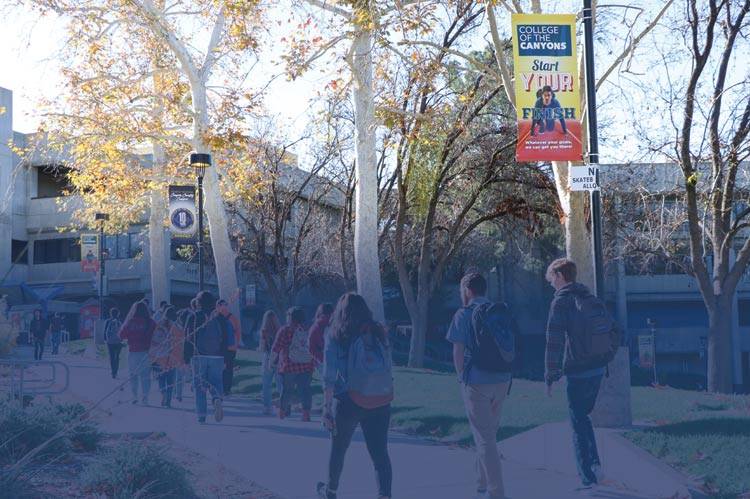Geology
Geology is the science that studies the earth. These studies includes earth's formation and composition, the processes that create resources such as fuels, minerals, and construction materials, the energy systems that modify landforms on the crust, the historical evolution of life and global climates, and the continuing interaction between humans and the natural environment. Through lecture, lab, and field study, the geology program provides insight, perspective, and application required to assist citizens in making well informed decisions concerning earth-related issues such as water resources, building and engineering, natural disasters, agriculture and ocean resources, and the long-term effects on our planet from an increasing population.
GEOL 100 PHYSICAL GEOLOGY LAB
Units: 1.00 - UC:CSU 54.00 hours lab
Co-requisite of GEOL-101
Megascopic and microscopic laboratory study and determination of selected elements, minerals and rocks; includes study and use of topographic maps, geologic tools, geologic maps, cross-sections and columns. Fieldwork may be required to collect earth materials and to recognize and study existing or on-going geologic processes, landforms and structures.
GEOL 101 PHYSICAL GEOLOGY
Units: 3.00 - UC:CSU 54.00 hours lecture
Explores the basic features of the exterior and interior of the earth's crust, the materials of which those features are composed, and the geologic processes which produced them. Includes specific consideration of minerals, rocks, volcanic activity, running water erosion, soils, ground water activity, land sliding, glaciations, coastlines, wind activity, deserts, plate tectonics, mountains, faults and earthquakes, metamorphism and geologic time.
GEOL 102 HISTORICAL GEOLOGY
Units: 4.00 UC:CSU 54.00 hours lecture
Studies the evolution of the earth's crust and the earth's plant and animal life from the beginnings to the present as revealed in geologic strata and in the fossil record. Emphasizes the evolution of the North American continent, its landforms, contiguous oceans, animals and plants, including some study of the principles of paleontology. Includes megascopic and microscopic laboratory study and evaluation of Earths materials and the evolution of Earth and its life forms with particular emphasis on fossils and sedimentary rocks; includes study and use of topographic maps, geologic tools, geologic maps, geologic time scales, cross-sections and columns. Fieldwork may be required to collect earth materials and to recognize and study existing or ongoing geologic processes, landforms and structures to interpret and evaluate the history of the Earth.
GEOL 104 NATURAL DISASTERS
Units: 3.00 UC:CSU 54.00 hours lecture
Examines the earth processes, forces, and systems that cause natural disasters, including volcanic eruptions, earthquakes, hurricanes, tsunamis, floods, mass extinction, and landslides.
GEOL 105 GEOLOGY OF CALIFORNIA
Units: 3.00 - UC:CSU 54.00 hours lecture
Analyzes major geomorphic provinces of California, including their topography, basic geologic landforms and structures, geologic history, main rock units and mineral resources, and fossil assemblages.
GEOL 109 EARTH SCIENCE
Units: 3.00 - UC:CSU 54.00 hours lecture
Surveys the terminology and basic concepts of the fields of earth science, including astronomy, geology, meteorology, and oceanography. Examines Earth's changing geologic systems and the importance of earth science phenomenon to daily life.
UC credit limitation: No credit if taken after a college-level course in astronomy, geology, meteorology or oceanography.
GEOL 218 INTRODUCTION TO OCEANOGRAPHY
Units: 4.00 - UC:CSU 54.00 hours lecture, 54.00 hours lab
A study of the history of oceanography, geological, chemical, biological and physical oceanography. Laboratories will include both in-class and required field studies which may include times outside of assigned laboratory times.

 My Canyons
My Canyons  Canvas
Canvas 
